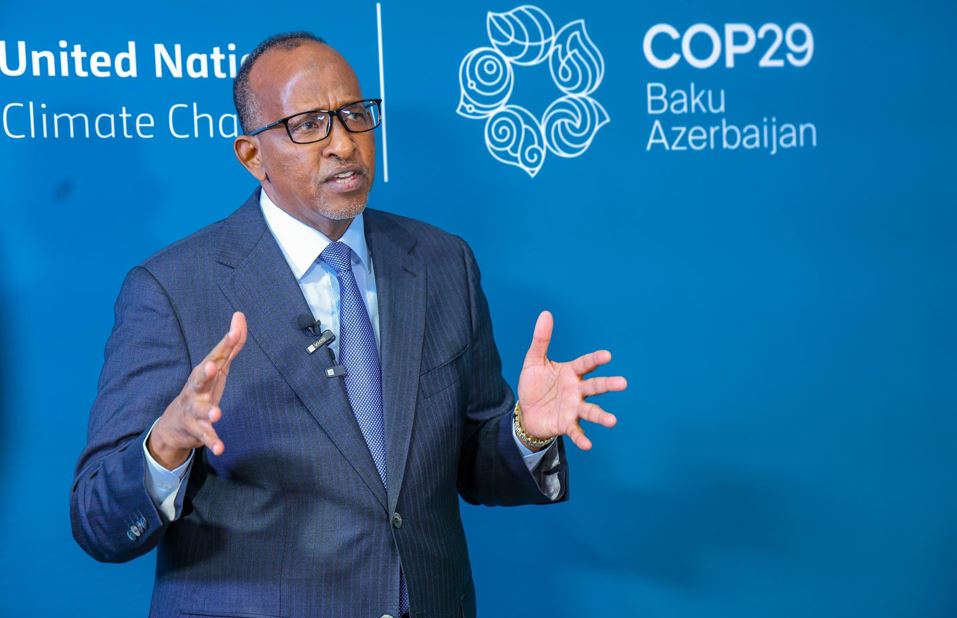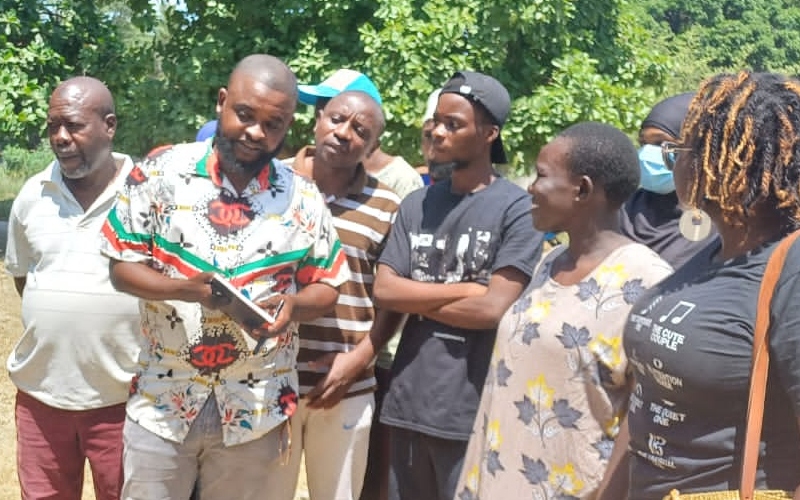Duale says Kenya to introduces colour-coded bags for waste segregation

The new system also involves specialised material recovery facilities where waste will be sorted into wet and dry categories.
Kenya is stepping up its efforts in sustainable waste management with the introduction of the National Sustainable Waste Management Act 2022.
Speaking at the COP29 Climate Conference on Wednesday in Baku, Azerbaijan, Environment Cabinet Secretary Aden Duale outlined the new measures aimed at improving waste segregation and disposal across the country.
More To Read
- 2025 set for second-hottest year on record
- Nyeri climate change activist Truphena Muthoni attempts 72-hour tree-hugging record
- UN’s Guterres vows to push for Palestine two-state solution, says he will ‘not shut up’
- Green economy now second-fastest global growth frontier, value hits Sh646.4 trillion - report
- Court certifies urgent petition over Sh17 billion waste contract awarded to Ghanaian firm
- Supporting Africa’s drylands: Insights from the pastoralists who call them home
Under the new law, every household in Kenya will receive three colour-coded bags to separate waste into specific categories: green for organic waste, blue for recyclables, and red for hazardous materials.
Duale noted that this initiative is crucial for enhancing waste management efficiency and reducing environmental impact.
"We will equip waste collection trucks with NEMA-issued tracking documents to ensure proper disposal and traceability, and they will follow designated routes to certified disposal sites," he explained.
This step is expected to improve accountability and help monitor waste from homes to final disposal points.
The new system also involves specialised material recovery facilities (MRFs), where waste will be sorted into wet and dry categories.
Organic waste will be sent to appropriate treatment facilities, while hazardous waste marked in red bags will be incinerated to ensure safe disposal.
In addition, the government is cracking down on industrial pollution, with the National Environment Management Authority (NEMA) issuing closure notices to 145 industrial facilities along the Nairobi River Basin for failing to meet environmental standards.
CS Duale revealed that these facilities, which have malfunctioning effluent treatment plants (ETPs), are responsible for a significant portion of the pollution in the river.
"Waste from informal settlements contributes less than 1 per cent to the pollution of Nairobi's rivers and can be effectively managed using these eco-friendly technologies," he said, dispelling common misconceptions about the role of informal settlements in environmental degradation.
Top Stories Today














































